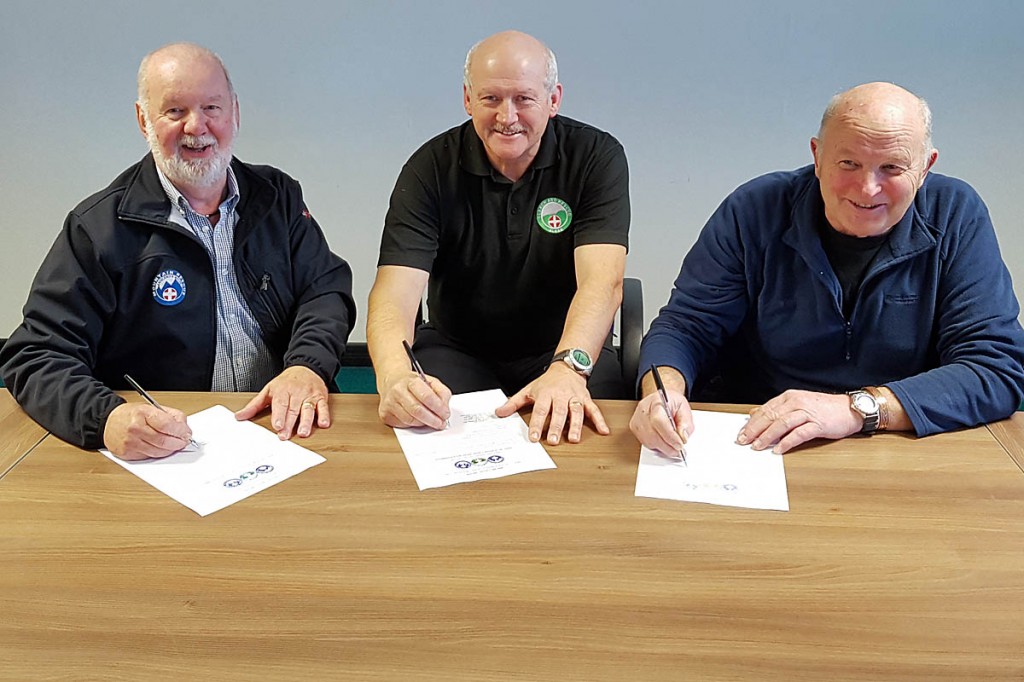Representatives of three outdoors rescue organisations are exploring ways to work more closely together.
The three largest UK land-based search and rescue bodies, Mountain Rescue England and Wales, Lowland Rescue and British Cave Rescue Council said they share the same core aims.
At a meeting late in 2016, all three chairpersons and their deputies met to talk, explore implications and plan for the process of forging closer working relationships.
Lowland Rescue, Mountain Rescue England and Wales and British Cave Rescue Council said they intend to explore avenues by which they and their respective member bodies can work more closely in pursuit of their mutual charitable objects. This includes a greater understanding of respective capabilities and increased co-operation across areas of mutual benefit and interest.
The three bodies represent individual teams across the country whose volunteers are trained to professional standards, and respond to hundreds of requests for help each year.
Mountain rescue team members are on call, 24 hours a day, 365 days a year to recover climbers from precipitous crags, reunite lost walkers with their friends and ensure injured and sick casualties are safely delivered into vital hospital care.
They also regularly help search for missing children and vulnerable adults, on and off the hills, whilst administering sympathetic support to their families. They search river banks and swift water, and wade chest-deep through flooded urban streets aiding swimmers, kayakers and devastated homeowners.
Mike France, chairman of MREW, said: “Mountain Rescue England and Wales began life as the First Aid Committee of Mountaineering Clubs set up by members of the Rucksack and Fell and Rock climbing clubs in 1936. They were determined to improve treatment for those injured in the mountains – including searching for the ideal mountain stretcher.
“Today 48 mountain rescue teams, comprising 3,000 volunteer members, cover two-thirds of England and Wales, on call 24/7, 365 days of the year.
“Within many areas of search and rescue we use the same skills, requiring the same qualifications as our colleagues from the other voluntary rescue services, so it make sense to explore avenues by which we can work more closely in pursuit of our mutual charitable objectives.
“The work of mountain rescue in England and Wales can be found in any of your communities, using many transferable skills. We are about ‘so much more than mountains’.”
Lowland Rescue was conceived and created in 1991, with the association of four original teams. Over the past 25 years, it has grown into 36 teams, with more than 1,800 professionally qualified volunteers covering over a third of the UK.
Lowland Rescue is a member of UK Search & Rescue, alongside mountain rescue and the Royal National Lifeboat Institution, providing official search and rescue coverage from hill to high water whenever requested.
Paul Lewis, chairman of Lowland Rescue, said: “Lowland Rescue has, at a team level, had a long history of working together with many partner agencies and other volunteer groups.
“This is an incredible opportunity to unify and enhance pre-existing local arrangements between search and rescue volunteers, some of which have provided some of the most successful and important case studies and examples of best practice in recent UK emergency response.
“Lowland Rescue is proud to be a part of the expanding role volunteers play in missing persons search and emergency response in the UK, and this agreement with Mountain Rescue England and Wales and British Cave Rescue Council will only help us do better going forward.”
The British Cave Rescue Council was formed in 1967 as the representative body for bona fide volunteer underground rescue organisations in the British Isles.
Its functions include representing and supporting its members at national and international level, promoting the exchange of information between member rescue organisations and providing a common voice for them. It is a co-ordinating, not a governing body. Individual cave rescue organisations remain entirely autonomous and independent.
Dany Bradshaw, chairman British Cave Rescue Council, said: “The first cave rescue team was formed in 1935 and today over a thousand volunteers in 15 teams belonging to the British Cave Rescue Council provide the underground search and rescue service for the thousands of caves, disused mines and other underground places throughout the British Isles.
“Teams only recruit from experienced cave and mine explorers who they then train and equip to provide a highly specialised emergency service for whenever it is required whether operating alone or as part of a multi-agency response to a major incident.”
Mountain rescue in Scotland is organised under the umbrella of Scottish Mountain Rescue, which represents most of the volunteer teams north of the border, apart from Glencoe, Cairngorm, Lochaber and Tayside MRTs, which left the organisation in 2016.
Teams in the island of Ireland are represented by Mountain Rescue Ireland.

chris jones
02 January 2017but not sarda?? seems a glaring omission
Ken
02 January 2017Quote from SARDA web site:- "SARDA England is a founder member of NSARDA and is also a member of Mountain Rescue England and Wales"
So they seem to be part of of the agreement already.